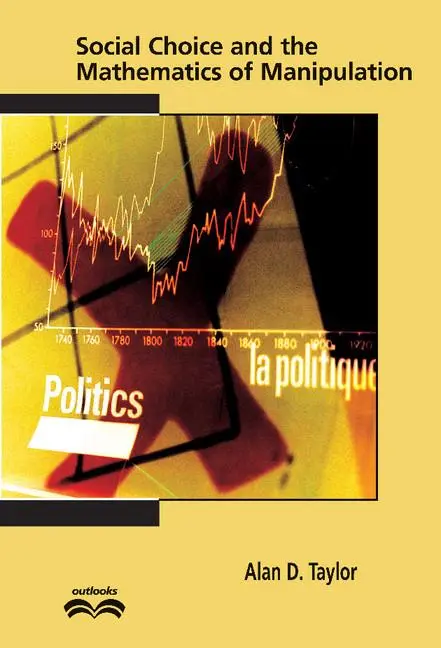Dekorationsartikel gehören nicht zum Leistungsumfang.
Sprache:
Englisch
137,95 €
Versandkostenfrei per Post / DHL
Lieferzeit 1-2 Wochen
Kategorien:
Beschreibung
Honesty in voting, it turns out, is not always the best policy. Indeed, in the early 1970s, Allan Gibbard and Mark Satterthwaite, building on the seminal work of Nobel laureate Kenneth Arrow, proved that with three or more alternatives there is no reasonable voting system that is non-manipulable; voters will always have an opportunity to benefit by submitting a disingenuous ballot. The ensuing decades produced a number of theorems of striking mathematical naturality that dealt with the manipulability of voting systems. This 2005 book presents many of these results from the last quarter of the twentieth century, especially the contributions of economists and philosophers, from a mathematical point of view, with many new proofs. The presentation is almost completely self-contained, and requires no prerequisites except a willingness to follow rigorous mathematical arguments. Mathematics students, as well as mathematicians, political scientists, economists and philosophers will learn why it is impossible to devise a completely unmanipulable voting system.
Honesty in voting, it turns out, is not always the best policy. Indeed, in the early 1970s, Allan Gibbard and Mark Satterthwaite, building on the seminal work of Nobel laureate Kenneth Arrow, proved that with three or more alternatives there is no reasonable voting system that is non-manipulable; voters will always have an opportunity to benefit by submitting a disingenuous ballot. The ensuing decades produced a number of theorems of striking mathematical naturality that dealt with the manipulability of voting systems. This 2005 book presents many of these results from the last quarter of the twentieth century, especially the contributions of economists and philosophers, from a mathematical point of view, with many new proofs. The presentation is almost completely self-contained, and requires no prerequisites except a willingness to follow rigorous mathematical arguments. Mathematics students, as well as mathematicians, political scientists, economists and philosophers will learn why it is impossible to devise a completely unmanipulable voting system.
Inhaltsverzeichnis
1. Introduction; 2. The Gibbard¿Satterthwaite theorem; 3. Additional results for single-valued elections; 4. The Duggan¿Schwartz theorem; 5. Additional results for multi-valued elections; 6. Ballots that rank sets; 7. Elections with outcomes that are lotteries; 8. Elections with variable agendas; References; Index.
Details
| Erscheinungsjahr: | 2012 |
|---|---|
| Fachbereich: | Allgemeines |
| Genre: | Importe, Mathematik |
| Rubrik: | Naturwissenschaften & Technik |
| Thema: | Lexika |
| Medium: | Buch |
| ISBN-13: | 9780521810524 |
| ISBN-10: | 0521810523 |
| Sprache: | Englisch |
| Einband: | Gebunden |
| Autor: | Taylor, Alan D. |
| Redaktion: |
Graham, Ronald
Barrow, John |
| Hersteller: | Cambridge University Press |
| Verantwortliche Person für die EU: | Libri GmbH, Europaallee 1, D-36244 Bad Hersfeld, gpsr@libri.de |
| Maße: | 235 x 157 x 15 mm |
| Von/Mit: | Alan D. Taylor |
| Erscheinungsdatum: | 01.08.2012 |
| Gewicht: | 0,434 kg |












